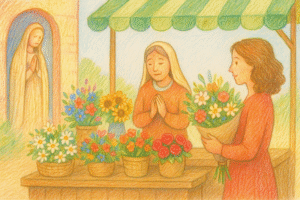Once I read this: if a child receives a gift in the presence of his mother, if his mother cares about the education of her child, she would immediately ask him: “what should you say?” If her child is an educated child, he would immediately answer: “thank you.”
And the reflection of the author of the article is: “that kid received one of the most important lessons of life: to be grateful.” And he continues saying “Gratitude is one of the most appreciated and cultivated values in our society.” A person commenting on the article asked: “is gratitude a value or a virtue?”
If we consider gratitude as a value, maybe the article was right. But if we consider gratitude as a virtue, gratitude is more than that and that lesson was not complete. We usually hear “well educated people are grateful.” Following that principle, we can say that an educated society is a grateful society. That society has gratitude as something worthy or meaningful, that is to say, as a value that should be cultivated among its members.
However, it does not mean that that society has the virtue of gratitude. Gratitude as a virtue is a deep attitude and not something superficial. Superficial gratitude is not a virtue and can be seen in the lack of coherence between words and actions.
Coherence between words and actions means that a grateful person tries to reciprocate or return with his actions that which was given to him as a gift. Therefore, if we really appreciate what was given to us, then we will try to pay back what we received, even though we cannot pay it back.
This attitude is a very important one to have towards God. We usually say that we are grateful for the benefits we receive. However, we are not consistent with those words when we do not try our best to give glory to God with our actions or when we do not try our best to accomplish His Will as a sign of gratitude.






